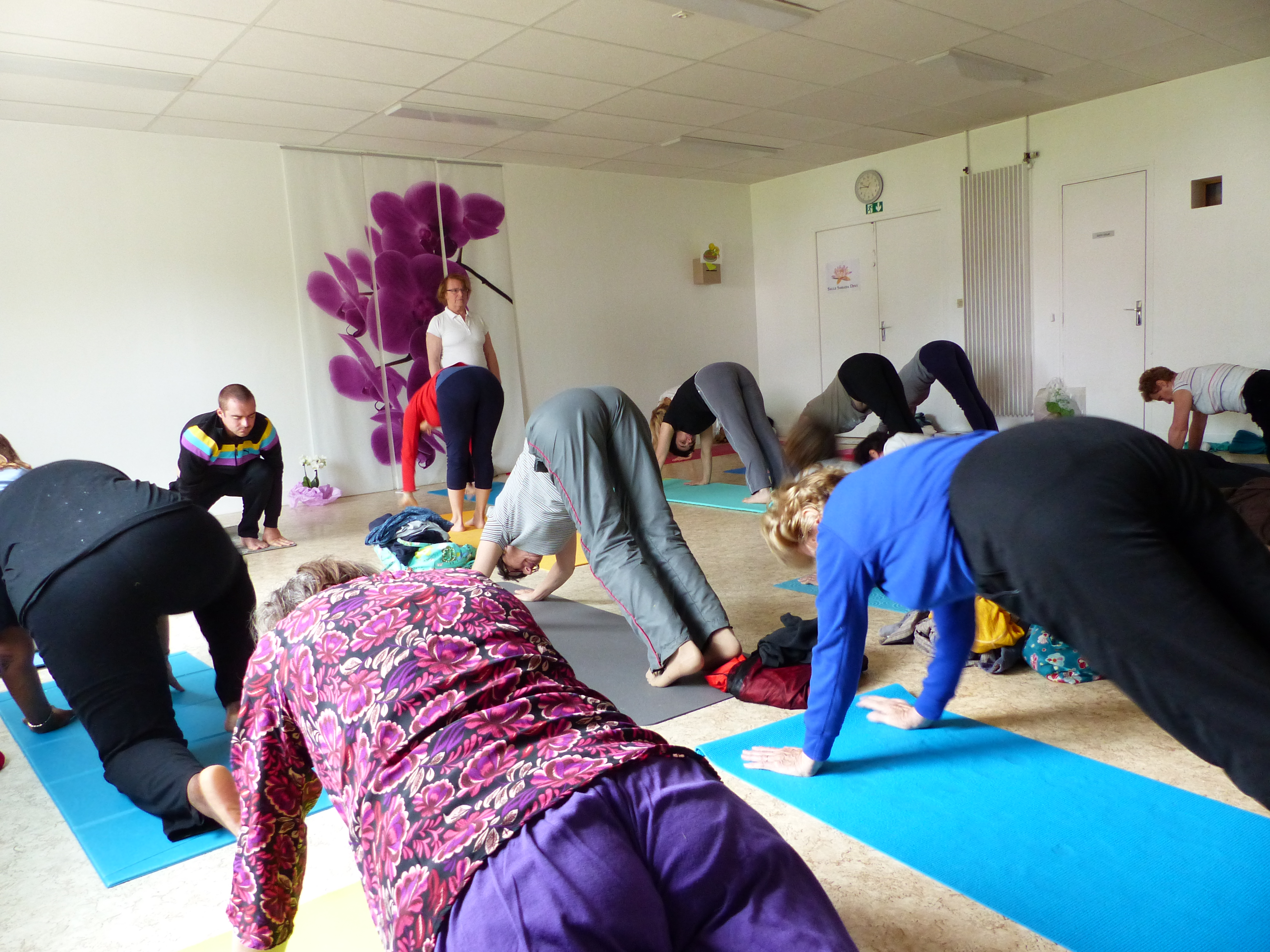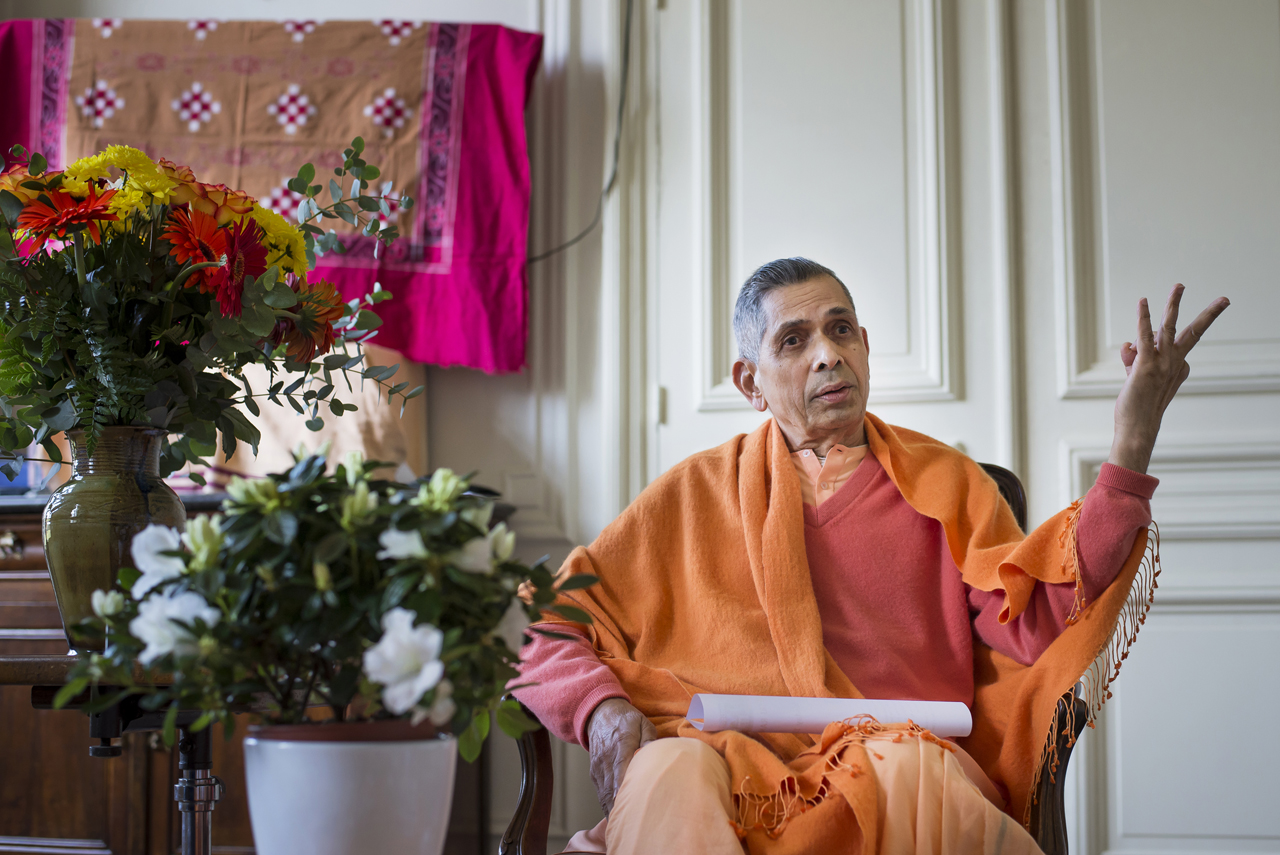The Day of Yoga Vedanta
The teachings of Ramakrishna and Vivekanada are a call to creativity: one of their goals is to realise all of humanity’s potential. Science, art, skills, as well as everyday tasks—all must be awakened by the spark of our inner spirit, to enable us to develop the excellence of our personality, for our benefit and for the benefit of humanity. The Ramakrishna Vedanta Centre abides by these teachings and therefore offers a series of courses that constitute what Swami Vivekanada and, thereafter, the previous Swamis of the Ramakrishna Vedanta Centre sought: a complete University of Man..
Yoga Vedanta days
from September to June
Practice is the essence of yoga. A yogi is, first of all, a practitioner, a philosopher, a theologian, and also a psychologist, in the wider sense of the words. Their rigour of their approach to their practice is akin to a scientist working in a laboratory.
The yogi analyses in order to attain Reality. They consider that realising transcendent Reality can only come their personal direct experience. Thankfully, such direct experience is a possibility for each of us. All that is required is a rigorous devotion to the practical application of yoga.
Yoga is a spontaneous reaction to our unconscious spiritual needs. It can stimulate the subconscious toward its spiritual needs, and lead to realisation and accomplishment. It is also said that yoga creates a dynamic spiritual need that orients every human activity in the direction of realising the ultimate Reality.
The system of Yoga developed by Patanjali is a practical implementation of the Samkhya philosophy. It is also the philosophy of psychology and of experimentation. Like all science, yoga requires a practical method to conduct analysis, as well as a synthesis of the physical and metaphysical universe.
Yoga is found, in one way or another, in all philosophical systems in India. Each way of knowledge is the result of three processes:
1. Careful experimentation
2. Precise and critical observation
3. The development of a theory based on the processes of induction and of deduction
These three strands are interrelated. The study of grammar helps purify the mind and speech, the study of medicine teaches how to purify the body, and the study of the Aphorisms on Yoga help purify the soul. Patanjali undoubtedly and intentionally worked in these three domains. As we know, a healthy body, a healthy mind, and healthy speech together produce a well-formed and coherent individual.
If you wish to reach this state, then you must abide by the following principles (practicing of tapas):
Practice tapas: Regularity and discipline in your personal efforts
Pursue sattvic nutrition
Mantras and meditation
Harmonisation of the 5 pranas: Prana, Apana, Vyuana, Udana, Samana
Wednesdays at the Ramakrishna Vedanta Centre
10h30 to 12h00: Meditation for peace and harmony
12h00: Lunch served (EUR 12, registration in advance required by email: contact@centre-vedantique.fr)
13h00: Karma Yoga (participation in the Ashram’s tasks)
15h00 to 16h30: Hatha Yoga, course led by visiting teachers with degrees from the different yogic federations
17h00 to 18h00: Guided meditation by Swami Veetamohananda
Saturdays at the Ramakrishna Vedanta Centre
09h00 to 10h15: Hatha Yoga, course led by visiting teachers with degrees from the different yogic federations
10h30 to 12h00: Meditation for peace and harmony
12h00: Lunch served (EUR 12, registration in advance required by email: contact@centre-vedantique.fr)
13h00: Karma Yoga (participation in the Ashram’s tasks)
15h00 to 16h30: Hatha Yoga, course led by visiting teachers with degrees from the different yogic federations
17h00 to 18h00: Theory – taught either by Swami Veetamohananda (pictured) or by one of the yoga teachers
Open to all – free entry



